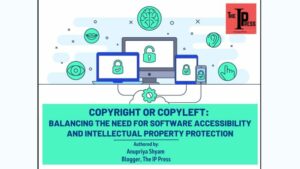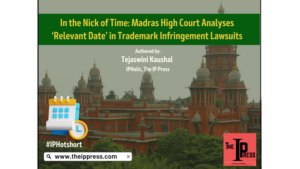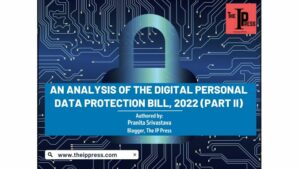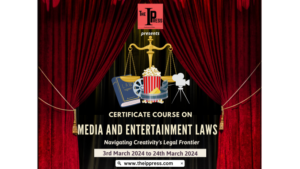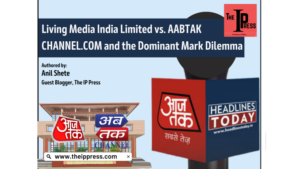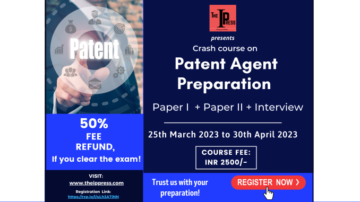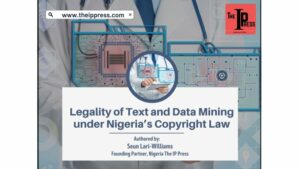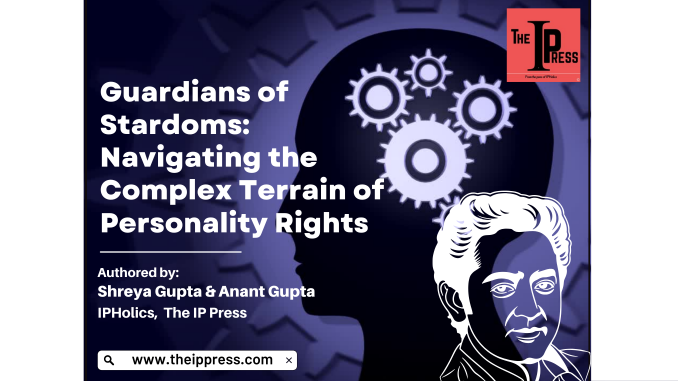

PART 1
This piece is Part 1 of a two-part blog series on Intellectual property in the age of Personality Rights. Part 1 of this series defines personality rights as encompassing various aspects of an individual’s persona, such as their name, voice, image, and likeness, and discusses how these rights are grounded in privacy and property rights. Additionally, the paper mentions a strike in Hollywood led by actors and screenwriters concerned about wage inequality and the growing threat of generative AI in the entertainment industry.
Introduction
Imagine you are a skilled actor, ardently dedicating yourself to your art. Your acting is your tool, captivating audiences and leaving an indelible impression on everyone who experiences it. Then, one day, you come across an online advertisement that leaves you utterly aghast. Upon closer examination, it becomes evident that the clip you’re watching features your work, even though you’ve never been involved in creating this particular piece. Initially, bewilderment and disarray consume your thoughts. However, soon, you realize the irrefutable truth: Your distinctive voice has been replicated, your persona intricately cloned, and used in an AI-generated video advertisement, all transpiring without your knowledge or unequivocal consent.
How would you react to such a perplexing predicament? Bewildered? Intrigued? Perhaps, you may even feel violated. Naturally, you might be inundated with many questions: Who possesses the requisite authority to employ your identity in this manner? Do you retain any semblance of control over utilizing your artistic essence? Does it constitute a breach of your copyright, or is it more related to your performer’s? Or does it encroach upon the sphere of your personality rights, as your unique personality is employed to recreate your identity and persona in a new work?
Now, transitioning from the realm of imagination to the grim and stark reality, these are genuine concerns affecting contemporary artists.
What are personality rights?
Personality rights, also known as individual rights of personality, encompass the legal prerogatives of an individual to safeguard their distinct persona, encompassing facets such as name, voice, images, signatures, popularity, expressions, gestures, mannerisms, distinctive character, and likeness. These rights are grounded in the domains of both privacy and property rights. Notably, celebrities and renowned personalities often seek legal redress in Court when various enterprises misuse their personality attributes in commercial ventures, thus amplifying sales without their informed consent. Consequently, eminent personalities and celebrities must reiterate and affirm their names to safeguard their personality rights.
How does law protect those rights?
The foundational principles of the right of publicity or personality rights were elucidated by the U.S. Court of Appeals for the Second Circuit in the case of Haelan Laboratories Inc. v. Topps Chewing Gum, Inc.[1] Key insights from this landmark case include the delineation of the right in the publicity value of one’s photograph, the notion that prominent individuals would experience deprivation if not remunerated for authorizing advertisements, and the recognition that unauthorized use typically generates no remuneration unless granted exclusively.
Subsequently, in the case of I.C.C. International v. Arvee Enterprises[2], the Delhi High Court further clarified that the right to publicity emanates from the right to privacy and is inherent in an individual’s personality, expressly limited to a living person and not to an event or a corporation organizing said event.
Personality rights embody two distinct tort-based rights: (a) the right to privacy, preventing the public representation of one’s personality without consent, and (b) the right to publicity, preserving one’s image and likeness from being commercially exploited without appropriate compensation, akin to using a trademark.
In India, personality rights still need to be legislatively recognized under a separate legal framework, and their development is subject to ongoing judicial interpretations. The recognition and acceptance of the right to publicity within the broader context of the right to privacy remain in their infancy within the legal landscape of India. This can primarily be attributed to the fact that the right to privacy, as enshrined as a Fundamental Right in the Indian Constitution, remained a subject of heated debate and contention until the landmark decision of the August 2017 KS Puttuswamy[3] judgment. However, existing legal provisions acknowledge aspects of personality rights within Article 21 of the Indian Constitution and specific statutes within intellectual property rights (I.P.R.) laws, notably the Copyright Act of 1957 and the Trademarks Act of 1999. These laws predominantly extend moral rights to authors and performers, encompassing actors, singers, musicians, and dancers.
Unauthorized Use of Celebrity Identity: Legal Insights
In the legal case of Mr. Gautam Gambhir v. D.A.P. & Co. & Anr.[4], the defendants operated a restaurant under the tagline ‘by Gautam Gambhir,’ despite lacking any genuine association with Mr. Gautam Gambhir. The Plaintiff alleged a violation of his personality rights. The Court’s deliberation determined that the defendant did not purport any affiliation between his business and the cricketer, nor did he engage in any conspicuous display of the cricketer’s imagery. Instead, the defendant prominently featured his likeness in his promotional materials. Furthermore, the Court astutely noted that no party lodged any substantive objections during the registration process of the restraint’s logos. Consequently, the Court arrived at the reasoned conclusion that the grant of an interim injunction was not warranted, as the defendant had exercised his bona fide entitlement to employ his name to promote his entrepreneurial endeavors without exploiting the cricketer’s reputation.
In the case of Selvi J. Jayalalithaa v. Penguin Books India[5], the Madras High Court was confronted with the intricate question of whether disseminating a celebrity’s confidential information without her explicit consent constituted a transgression of her sacrosanct right to privacy. Although the Court’s response was unequivocally in the affirmative, it refrained from delving explicitly into the realm of the right to publicity. The Plaintiff petitioned the Court for an injunction against the publication of ‘Jayalalitha: A Portrait,’ ostensibly a biographical work about the Plaintiff herself, which had been penned without her authorization and lacked any semblance of credible verification. The narrative’s foundation rested on news articles and clippings; a fact not lost on the discerning Court. While acknowledging that “the private life of the plaintiff was not intertwined with her public pursuits, an exception delineated in accordance with the esteemed judgment of the Hon’ble Apex Court in Auto Shankar’s case,” the Madras High Court, in a momentous verdict, issued an injunction in favor of the Plaintiff, thereby precluding the publication of the contentious book.
Looking west: the ongoing Hollywood drama and beyond
Internationally, the entertainment industry, particularly Hollywood, is witnessing a historic strike spearheaded by actors and screenwriters, driven significantly by mounting concerns surrounding wage inequality and the growing threat of generative AI. The studios’ burgeoning reliance on AI-generated content raises questions about the future role of human talent in the industry and the financial implications for those affected by the strike.
The stars of the Oppenheimer movie and the cast of Barbie, who were concurrently promoting their film, opted to depart their respective events a full hour prematurely. This collective symbolic action was taken to signify the commencement of a nationwide actors’ strike, showing their support for the ongoing writers’ strike in Hollywood that started in May 2023. According to an Associated Press report, after nearly six decades, approximately 65,000 actors and 11,500 screenwriters in the United States have come together in a historic strike. Their primary objectives are to address two long-standing issues within the entertainment industry: wage inequality and the imminent challenge posed by generative AI (artificial intelligence).[6]
When Hollywood studio executives stated that the first fully realized feature film script written by generative AI would grace screens in 2024, they made a worrying claim. Black Mirror, a Netflix series, employed AI to create the titular character without Salma Hayek’s permission in the Joan is awful episode from the sixth season. Actors find themselves in a precarious position in that they are not paid and have little control over the utilization of their photographs, often captured during routine sessions or disseminated via social media posts. One of the numerous items on the SAG-AFTRA list is AI’s existential threat to their livelihood.
Understandably, this has significant financial ramifications for the parties on strike who were already negotiating higher pay for their services. Unless stringent limitations are imposed on how AI can replicate services, including artistic performances, the studios may reduce their reliance on real-life talent and rely on generative AI to fulfill creative roles.
On an unrelated subject, and possibly in the spirit of “if you cannot join them, beat them,” there is the artist Grimes, who forayed into uncharted territory by incorporating generative AI into her creative process, blurring the lines of authorship and ownership, through a pioneering of a program called Elf. Tech, she allowed other musicians to use her voice samples to make their music seem like hers in a viral pilot program. A generative AI music operating system created by CreateSafe, an online platform for artist management and trained with Grimes’ voice, is used by Elf. Tech to create music. The artists are empowered to incorporate these “transformed” voice samples into their compositions with the caveat of acknowledging Grimes as the performing artist and remitting half of the ensuing revenues to her. While this fusion of human ingenuity with AI innovation offers incredible prospects for the evolution of art, it also poses complex issues regarding authorship and ownership. While AI offers exciting possibilities for artistic innovation, it raises complex legal and ethical questions regarding attribution and revenue sharing.
The next part of this two-part series will discuss the challenges AI presents to celebrities, artists, and lookalikes. It will also discuss relevant sections of intellectual property rights laws and how they pertain to personality rights.
[1] Haelan Laboratories Inc. v. Topps Chewing Gum, Inc., 202 F.2d 866 (2d Cir. 1953)
[2] I.C.C. International v. Arvee Enterprises, 2003 (26) PTC 245
[3] KS Puttuswamy v. UOI, 2017) 10 SCC 1
[4] Gautam Gambhir v. D.A.P & Co & Anr., CS(COMM) 395/2017
[5] Selvi J. Jayalalithaa v. Penguin Books India, (2013) 54 PTC 327
[6] https://www.nytimes.com/live/2023/07/13/business/actors-strike-sag (last visited on 10th Oct, 2023)
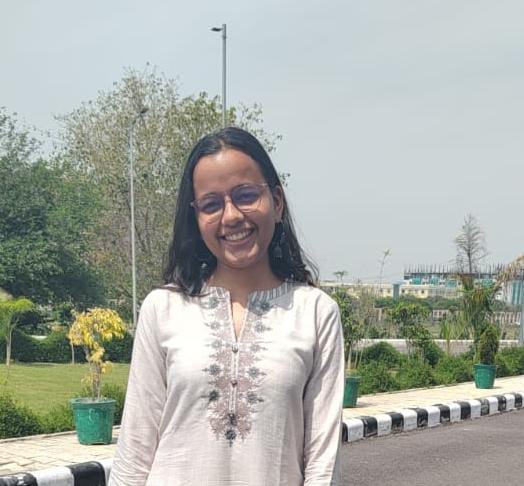

Shreya Gupta
Author
Shreya Gupta is 3rd year student pursuing BA. LLB. (H.) from NLU, Sonepat. In her pursuit of diverse knowledge, she has a keen interest in various laws such as IPR, IBC, Dispute Resolution, etc. Her passion for the law extends to her involvement in writing, research and attending various seminars.
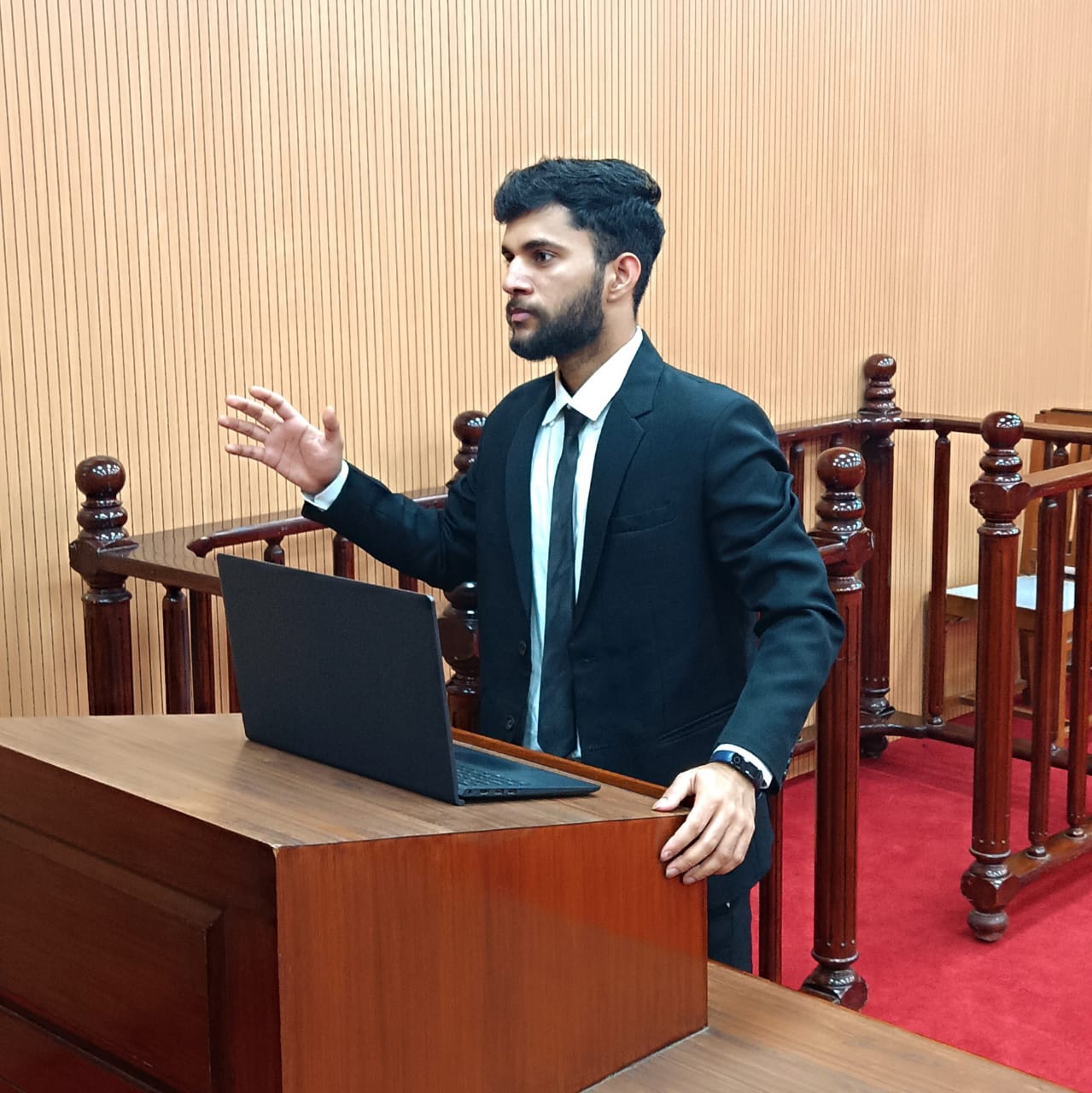

Anant Gupta
Author
Anant Gupta is a 3rd year B.A. LL.B. (Hons.) student at DNLU, Jabalpur His interest areas align with Intellectual Property Law, Corporate Law and Dispute resolution. Alongside his legal interests, he is also a keen learner, an avid reader and an experienced writer.
- SEO Powered Content & PR Distribution. Get Amplified Today.
- PlatoData.Network Vertical Generative Ai. Empower Yourself. Access Here.
- PlatoAiStream. Web3 Intelligence. Knowledge Amplified. Access Here.
- PlatoESG. Carbon, CleanTech, Energy, Environment, Solar, Waste Management. Access Here.
- PlatoHealth. Biotech and Clinical Trials Intelligence. Access Here.
- Source: https://www.theippress.com/2024/02/01/guardians-of-stardoms-navigating-the-complex-terrain-of-personality-rights/
- :has
- :is
- :not
- ][p
- 000
- 1
- 10
- 10th
- 11
- 16
- 1999
- 2%
- 2013
- 2017
- 202
- 2023
- 2024
- 21
- 24
- 26
- 2D
- 30
- 3rd
- 4
- 5
- 500
- 54
- 6
- 65
- a
- About
- acceptance
- accordance
- According
- acknowledge
- across
- Act
- acting
- Action
- actors
- Additionally
- address
- Advertisement
- affected
- affecting
- Affirm
- After
- against
- age
- AI
- akin
- align
- All
- alleged
- allowed
- alongside
- already
- also
- Although
- amplifying
- an
- and
- any
- Apex
- appeals
- appropriate
- approximately
- ARE
- areas
- arrived
- Art
- article
- articles
- artificial
- artificial intelligence
- artist
- artistic
- Artists
- AS
- aspects
- associated
- Association
- At
- attending
- attributes
- audiences
- AUGUST
- authority
- authorization
- authors
- Authorship
- auto
- b
- BE
- beat
- becomes
- been
- being
- between
- Black
- Blog
- book
- Books
- both
- breach
- broader
- burgeoning
- business
- by
- called
- CAN
- cannot
- captivating
- captured
- case
- celebrities
- Celebrity
- challenge
- challenges
- character
- circuit
- claim
- clarified
- closer
- CO
- Collective
- come
- comm
- commencement
- commercial
- commercially
- Compensation
- complex
- concerned
- Concerns
- conclusion
- consent
- Consequently
- constitute
- Constitution
- consume
- contemporary
- content
- context
- control
- copyright
- Corporate
- CORPORATION
- Court
- create
- created
- Creating
- Creative
- credible
- day
- debate
- decades
- decision
- defendants
- Defines
- Delhi
- delving
- Despite
- determined
- Development
- DID
- discuss
- Display
- Dispute
- Dispute Resolution
- distinct
- distinctive
- diverse
- do
- does
- domains
- Drama
- driven
- during
- elf
- emanates
- embody
- employed
- empowered
- encompass
- encompassing
- endeavors
- engage
- ensuing
- enterprises
- Entertainment
- Entitlement
- entrepreneurial
- episode
- essence
- esteemed
- etc
- Ether (ETH)
- ethical
- Even
- Event
- events
- everyone
- evident
- evolution
- examination
- exception
- exciting
- exclusively
- executives
- existential
- existing
- experience
- experienced
- Experiences
- explicitly
- exploited
- exploiting
- expressions
- expressly
- extend
- extends
- facets
- fact
- favor
- Feature
- featured
- Features
- feel
- Film
- financial
- Find
- First
- For
- Foundation
- Foundational
- Framework
- from
- Fulfill
- full
- fully
- fundamental
- further
- Furthermore
- fusion
- future
- generates
- generative
- Generative AI
- genuine
- grace
- grant
- granted
- grim
- grounded
- Growing
- Guardians
- Gupta
- had
- Half
- Have
- he
- her
- High
- higher
- his
- historic
- Hollywood
- hour
- How
- However
- HTTPS
- human
- i
- IBC
- Identity
- if
- image
- images
- imagination
- implications
- imposed
- in
- Inc.
- include
- Including
- incorporate
- incorporating
- incredible
- india
- Indian
- individual
- individuals
- industry
- Inequality
- information
- informed
- ingenuity
- inherent
- initially
- Innovation
- insights
- instead
- intellectual
- intellectual property
- Intelligence
- interest
- interests
- interim
- International
- intertwined
- into
- intricate
- involved
- involvement
- IP
- Issued
- issues
- IT
- items
- join
- jpg
- judicial
- Keen
- knowledge
- known
- laboratories
- lacking
- landmark
- landscape
- Last
- Law
- Laws
- learner
- leaves
- leaving
- Led
- Legal
- legal framework
- Life
- like
- limitations
- Limited
- lines
- List
- little
- living
- ll
- long-standing
- lost
- made
- make
- management
- manner
- many
- materials
- max-width
- May..
- Media
- mentions
- might
- mirror
- misuse
- momentous
- moral
- more
- movie
- mr
- Music
- musicians
- must
- name
- names
- Nationwide
- navigating
- nearly
- Need
- Netflix
- never
- New
- news
- next
- nlu
- no
- nor
- notably
- noted
- Notion
- numerous
- objections
- objectives
- Oct
- of
- Offers
- often
- on
- ONE
- ongoing
- online
- operated
- operating
- operating system
- or
- organizing
- ostensibly
- Other
- over
- ownership
- paid
- Paper
- part
- particular
- particularly
- parties
- party
- passion
- Pay
- performances
- performers
- performing
- perhaps
- permission
- person
- Personalities
- Personality
- photographs
- piece
- pilot
- Pioneering
- platform
- plato
- Plato Data Intelligence
- PlatoData
- popularity
- portrait
- posed
- poses
- position
- possesses
- possibilities
- possibly
- posters
- Posts
- predominantly
- presents
- preserving
- press
- preventing
- primarily
- primary
- principles
- privacy
- private
- process
- Program
- prominent
- promote
- promoting
- promotional
- property
- Property Rights
- prospects
- protect
- ptc
- public
- Publication
- publicity
- pursuing
- pursuit
- question
- Questions
- R
- raises
- ramifications
- React
- Reader
- Reality
- realize
- realized
- realm
- recognition
- recognized
- reduce
- regarding
- Registration
- related
- relevant
- reliance
- rely
- remain
- remained
- remuneration
- Renowned
- replicated
- report
- representation
- reputation
- requisite
- research
- Resolution
- respective
- response
- restaurant
- retain
- revenue
- revenues
- right
- rights
- Role
- roles
- routine
- s
- Said
- sales
- salma
- scc
- screens
- script
- Season
- Second
- sections
- Seek
- seem
- separate
- Series
- Services
- sessions
- sharing
- she
- showing
- Signatures
- significant
- significantly
- signify
- SIX
- sixth
- skilled
- Social
- social media
- Social Media Posts
- Soon
- spearheaded
- specific
- sphere
- spirit
- square
- stark
- Stars
- started
- stated
- States
- Still
- strike
- stringent
- Student
- studio
- studios
- subject
- such
- support
- Surrounding
- symbolic
- system
- taken
- Talent
- tech
- territory
- that
- The
- The Future
- the Law
- their
- Them
- themselves
- then
- There.
- thereby
- These
- they
- this
- those
- though?
- threat
- Through
- Thus
- to
- together
- tool
- Topps
- trademark
- trademarks
- trained
- transitioning
- truth
- two
- typically
- u.s.
- unauthorized
- uncharted
- under
- unique
- United
- United States
- unless
- until
- upon
- use
- used
- using
- Utilizing
- value
- various
- Ventures
- Verdict
- Verification
- via
- Video
- violated
- VIOLATION
- viral
- visited
- Voice
- wage
- was
- watching
- were
- West
- when
- whether
- which
- while
- WHO
- will
- with
- within
- without
- witnessing
- Work
- worrying
- would
- writer
- writing
- written
- year
- you
- Your
- yourself
- zephyrnet

